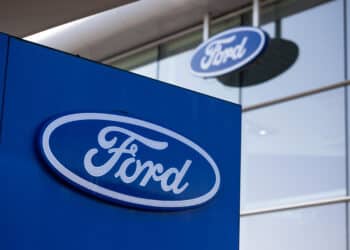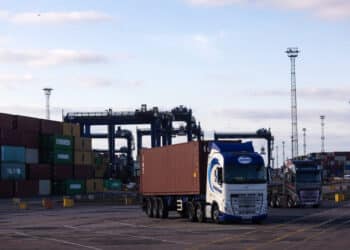Regulations and inadequate charging infrastructure were among the biggest challenges facing the commercial EV market in 2024.
Commercial truck dealers in some states felt the strain of EV mandates as regulators and manufacturers pressured them to prioritize selling zero-emission vehicles. Commercial truck lenders are also altering operations to prepare for increased EV financing demand.
Here are Equipment Finance News’ top five EV stories of 2024.

1. Charged up: Financiers prep for the EV future
In light of the Environmental Protection Agency’s updated rule to reduce nitrogen oxide emissions from commercial vehicles, truck lenders started embracing charging-as-a-service financing. Mitsubishi HC Capital America, Daimler Truck Financial Services and Wells Fargo have partnered with EV charging manufacturers to expand financing offerings for charging equipment. Despite increased EV truck sales, a dearth of charging stations looms over the transportation sector.
2. EV mandates throw wrench into commercial truck dealer ops
EV mandates dealt a blow to commercial truck dealers, especially in California and the 10 states that have adopted at least some of the California Air Resources Board’s (CARB) rules for heavy-duty vehicles. Some dealers lost sales of diesel trucks due to a credit-based system that requires them to sell an EV first. Plus, CARB’s review process mitigated the benefits of some financial incentives, withholding funds for up to six months after a sale.
3. EV fleet transportation costs exceed diesel
While trucking companies can reduce or eliminate the cost of traditional fuel by electrifying their fleets, those costs are still more than diesel trucks, according to Ryder System. The difference is especially apparent in the heavy-duty sector, where transportation costs are 114% higher for an EV. The rising cost of labor is a key challenge facing the EV sector, with refueling time and payload “unlikely to match gas/diesel units,” Darren Epps, senior director of advanced vehicle technology at Ryder, told EFN.
4. Sany dealers respond to new EV products
Commercial trucking wasn’t the only industry affected by the EV push. Construction equipment manufacturer Sany launched a line of off-road EV products in 2024, but dealers voiced skepticism about their benefits. Dealers’ top challenges when trying to sell electric machinery include higher upfront costs, insufficient battery life and minimal charging sources at most job sites.
5. Heavy-duty EVs face uphill climb
Despite a wave of new EVs hitting the market, very few fleet owners are interested. As of August, the adoption rate for North American Class 8 battery electric vehicles (BEV) was 1.6% for the 2025 model year, and that’s expected to rise to 13% by 2030 and 29% by 2040. There is more interest in the medium-duty sector, with North American Class 4 and Class 5 BEV adoption sitting at 4.1% for 2025 and expected to hit 39% by 2030 and 64% by 2040.
The third annual Equipment Finance Connect at the JW Marriott Nashville in Nashville, Tenn., on May 14-15, 2025, is the only event that brings together equipment dealers and lenders to share insights, attend discussions on crucial industry topics and network with peers. Learn more about the event and register here.









